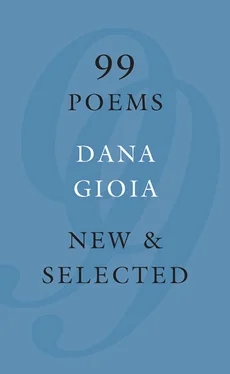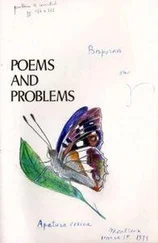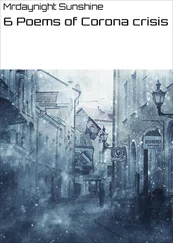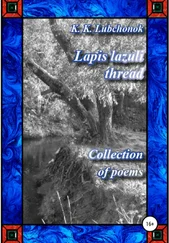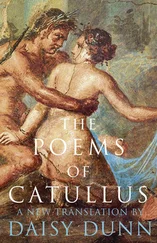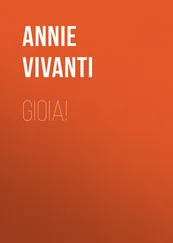“Taking good care of your clients, Marlowe?”
Relentlessly the wind blows on. Next door
catching a scent, the dogs begin to howl.
Lean, furious, raw-eyed from the storm,
packs of coyotes come down from the hills
where there is nothing left to hunt.
Half an hour north of Grand Central
the country opens up. Through the rattling
grime-streaked windows of the coach, streams appear,
pine trees gather into woods, and the leaf-swept yards
grow large enough to seem picturesque.
Farther off smooth parkways curve along the rivers,
trimmed by well-kept trees, and the County Airport
now boasts seven lines, but to know this country
see it from a train — even this crowded local
jogging home half an hour before dark
smelling of smoke and rain-damp shoes
on an afternoon of dodging sun and showers.
One trip without a book or paper
will show enough to understand
this landscape no ones takes too seriously.
The architecture of each station still preserves
its fantasy beside the sordid tracks—
defiant pergolas, a shuttered summer lodge,
a shadowy pavilion framed by high-arched windows
in this land of northern sun and lingering winter.
The town names stenciled on the platform signs—
Clear Haven, Bullet Park, and Shady Hill—
show that developers at least believe in poetry
if only as a talisman against the commonplace.
There always seems so much to guard against.
The sunset broadens for a moment, and the passengers
standing on the platform turn strangely luminous
in the light streaming from the Palisades across the river.
Some board the train. Others greet their arrivals
shaking hands and embracing in the dusk.
If there is an afterlife, let it be a small town
gentle as this spot at just this instant.
But the car doors close, and the bright crowd,
unaware of its election, disperses to the small
pleasures of the evening. The platform falls behind.
The train gathers speed. Stations are farther apart.
Marble staircases climb the hills where derelict estates
glimmer in the river-brightened dusk.
Some are convents now, some orphanages,
these palaces the Robber Barons gave to God.
And some are merely left to rot where now
broken stone lions guard a roofless colonnade,
a half-collapsed gazebo bursts with tires,
and each detail warns it is not so difficult
to make a fortune as to pass it on.
But splendor in ruins is splendor still,
even glimpsed from a passing train,
and it is wonderful to imagine standing
in the balustraded gardens above the river
where barges still ply their distant commerce.
Somewhere upstate huge factories melt ore,
mills weave fabric on enormous looms,
and sweeping combines glean the cash-green fields.
Fortunes are made. Careers advance like armies.
But here so little happens that is obvious.
Here in the odd light of a rainy afternoon
a ledger is balanced and put away,
a houseguest knots his tie beside a bed,
and a hermit thrush sings in the unsold lot
next to the tracks the train comes hurtling down.
Finally it’s dark outside. Through the freight houses
and oil tanks the train begins to slow
approaching the station where rows of travel posters
and empty benches wait along the platform.
Outside a few cars idle in a sudden shower.
And this at last is home, this ordinary town
where the lights on the hill gleaming in the rain
are the lights that children bathe by, and it is time
to go home now — to drinks, to love, to supper,
to the modest places which contain our lives.
THE GARDEN ON THE CAMPAGNA
Noon — and the shadows of the trees
have fallen from the branches. The frail
blue butterflies still flutter hungrily
among the weeds, and a few pale flowers
climb up the yellow hill and fade away.
The scarred brown lizards lie immobile
in the dust. A line of ants
picks clean the carcass of a frog.
Only the smallest things survive
in this exhausted land the gods
so long ago abandoned. Time
and rain have washed the hero’s face
from off the statue. The sundial
stands perpetually in shade.
The bankrupt palace still remains
beyond the wall that summer builds,
doors bolted shut, the roof caved in,
the ancient family without heirs,
and one half-blind old man who sits
each day beside the empty pond
mumbling to himself in dialect.
The village boys throw stones at him,
but he will never leave, and there
is no one left who knows if he
was once the servant or the sire.
MOST JOURNEYS COME TO THIS
an Italy of the mind
— WALLACE STEVENS
I.
Leave the museums, the comfortable rooms,
the safe distractions of the masterpiece.
The broken goddesses have lost their voice,
the martyr’s folded hands no longer bless.
Footsteps echo through the palaces
where no one lives. Consider what you’ve come for.
Leave the museums. Find the dark churches
in back towns that history has forgotten,
the unimportant places the powerful ignore
where commerce knows no profit will be made.
Sad hamlets at the end of silted waterways,
dry mountain villages where time
is the thin shadow of an ancient tower
that moves across the sundazed pavement of the square
and disappears each evening without trace.
Make the slow climb up the winding alleys.
Walk between houses shuttered close for midday
and overhear the sound of other lives,
the conversations in the language you
will never learn. Make the long ascent
up to the gray stone chapel on the hillside
when summer is a furnace open to the world,
and pause there breathless in the blinding sun
only one moment, then enter.
For this
is how it must be seen to understand:
by walking from the sunlight into darkness,
by groping down the aisle
as your wet skin cools and your eyes adjust,
by finding what you’ve come for thoughtlessly,
shoved off into a corner, almost lost
among the spectacle of gold and purple.
Here in the half-light, covered by the years
it will exist. And wait,
wait like a mirror in an empty room
whose resolutions are invisible
to anyone but you. Wait like the stone
face of a statue waits, forever frozen
or poised in the moment before action.
II.
But if the vision fails, and the damp air
stinks of summer must and disrepair,
if the worn steps rising to the altar
lead nowhere but to stone, this, too, could be
the revelation — but of a destiny
fixed as the graceless frescoes on the wall—
the grim and superannuated gods
who rule this shadow-land of marble tombs,
bathed in its green suboceanic light.
Not a vision to pursue, and yet
these insufficiencies make up the world.
Strange how most journeys come to this: the sun
bright on the unfamiliar hills, new vistas
dazzling the eye, the stubborn heart unchanged.
On the same journey each of them
Is going somewhere else. A goose-necked
Woman in a flowered dress
Stares gravely at two businessmen.
They turn away but carry on
Their argument on real estate.
Lost in a mist of aftershave,
Читать дальше
